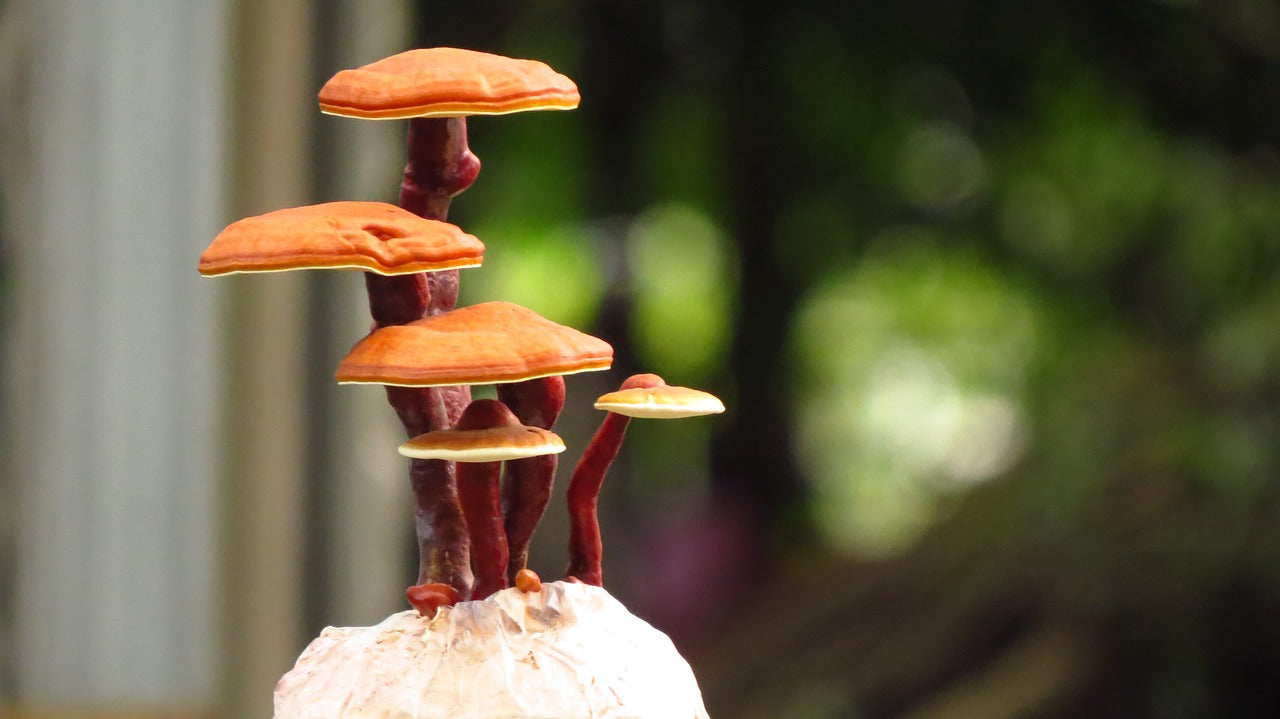

· By Tyler Barr
Uncovering the Science of Reishi Mushrooms and Their Impact on Autoimmune Diseases
Reishi mushrooms, also known as Ganoderma lucidum, have been used in traditional Chinese medicine for centuries to boost the immune system and treat various health conditions. Recently, scientific research has begun to uncover the potential benefits of reishi mushrooms in treating autoimmune diseases.
Autoimmune diseases occur when the body's immune system mistakenly attacks its own cells and tissues. These diseases, which include rheumatoid arthritis, lupus, and multiple sclerosis, can cause inflammation, pain, and damage to the body's organs and systems. Current treatments for autoimmune diseases often involve the use of immunosuppressive drugs, which can have significant side effects.
Reishi mushrooms contain a variety of bioactive compounds, including polysaccharides, triterpenes, and proteoglycans, that have been shown to have anti-inflammatory and immunomodulatory effects. These compounds may help to regulate the immune system and reduce the inflammation associated with autoimmune diseases.
Overall, reishi mushrooms show promise as a potential treatment for autoimmune diseases. However, more research is needed to confirm the safety and effectiveness of reishi mushrooms for these conditions in humans. If you're considering using reishi mushroom supplements, it's important to talk to your doctor first.
What scientific evidence is there between Reishi Mushrooms and autoimmune diseases?
In laboratory and animal studies, reishi mushrooms have been shown to have a beneficial effect on autoimmune conditions such as rheumatoid arthritis, lupus, and multiple sclerosis.
Here are a few studies that have investigated the potential benefits of reishi mushrooms in the treatment of autoimmune diseases:
- In a study published in the journal Phytotherapy Research, reishi mushroom extract was found to reduce inflammation and improve symptoms in animals with collagen-induced arthritis, a model of rheumatoid arthritis.
- A review published in the Journal of Ethnopharmacology looked at the potential benefits of reishi mushrooms in the treatment of autoimmune diseases. The authors concluded that reishi mushrooms have anti-inflammatory and immune-modulating effects and may be a potential treatment for autoimmune diseases.
- A study published in the journal Evidence-Based Complementary and Alternative Medicine found that reishi mushroom extract improved symptoms and reduced inflammation in animals with experimental autoimmune encephalomyelitis, a model of multiple sclerosis.
What are the known risks of taking Reishi Mushrooms while you have an autoimmune disease?
There are no known risks associated with taking reishi mushrooms if you have an autoimmune disease. However, it is always important to speak with a healthcare provider before starting any new treatment, including the use of reishi mushrooms. Some people with autoimmune diseases may be taking medications that can interact with reishi mushrooms or other supplements.
It is important to discuss the use of any new treatment with a healthcare provider to ensure that it is safe and appropriate for you. Additionally, while reishi mushrooms are generally considered safe, some people may experience side effects when taking them, such as dry mouth, upset stomach, and dizziness.
It is also possible that reishi mushrooms may interfere with certain medications or have other interactions with other supplements or medications. Again, it is important to speak with a healthcare provider before starting any new treatment, including the use of reishi mushrooms, to ensure that it is safe and appropriate for you.

